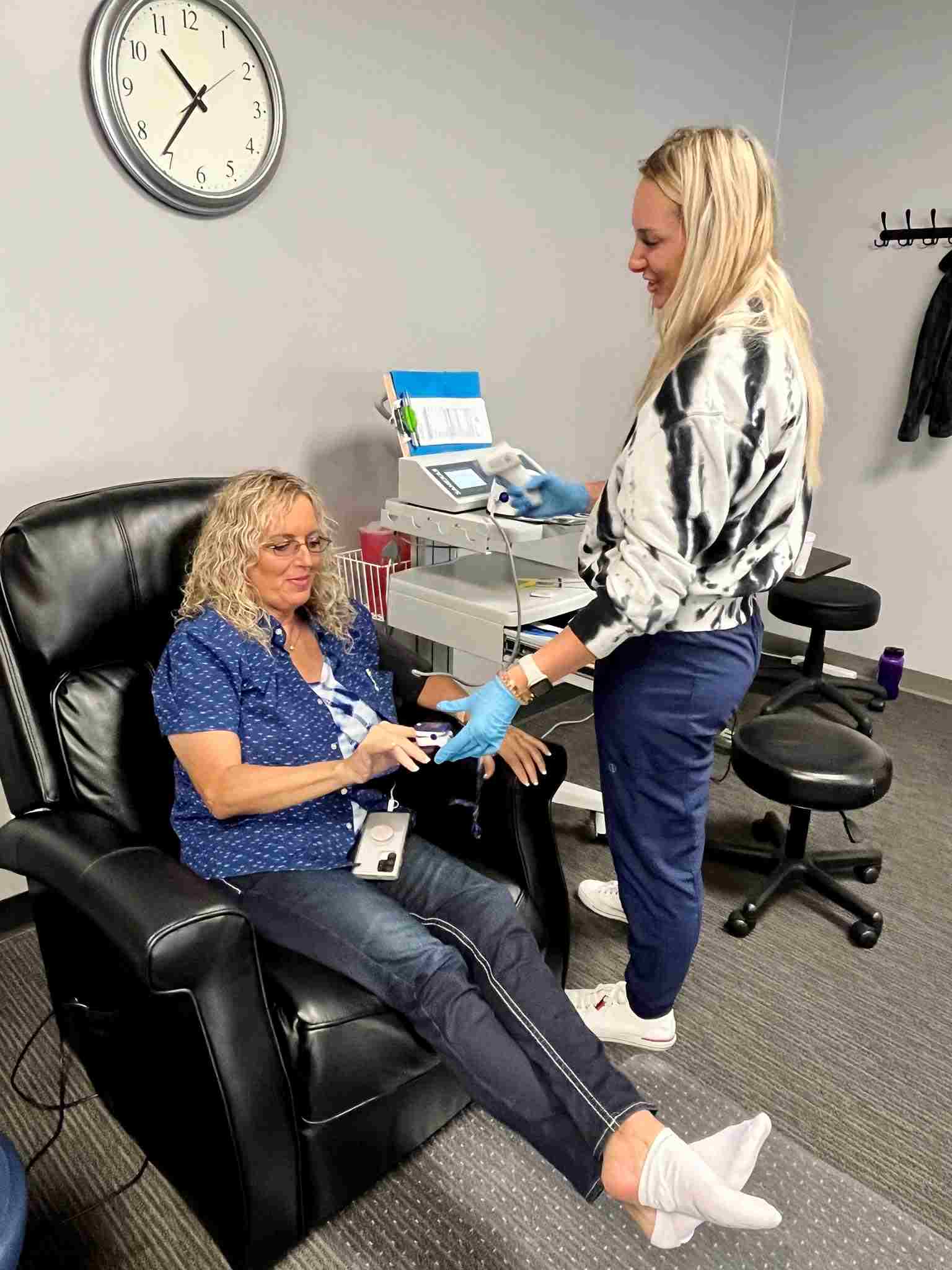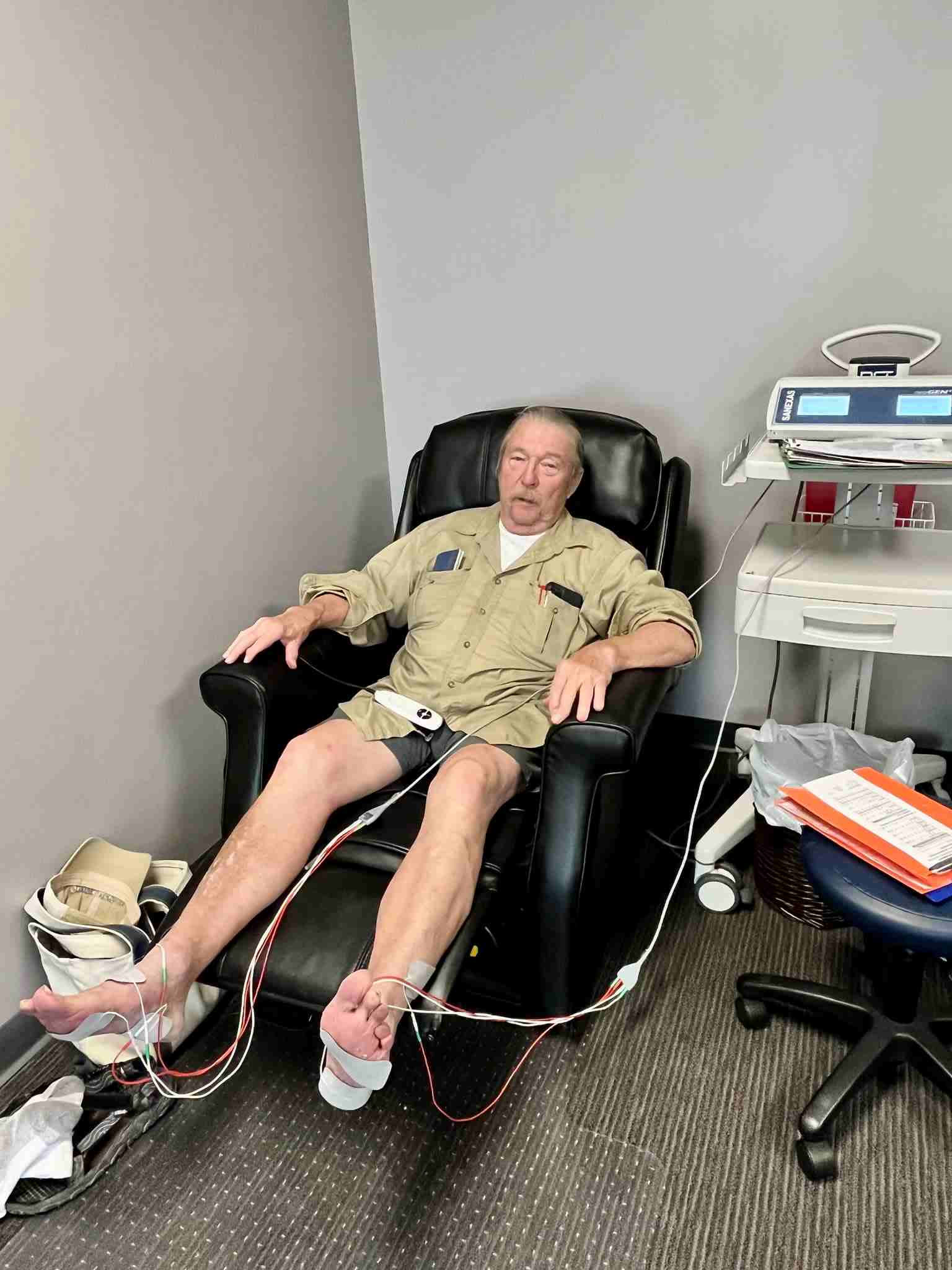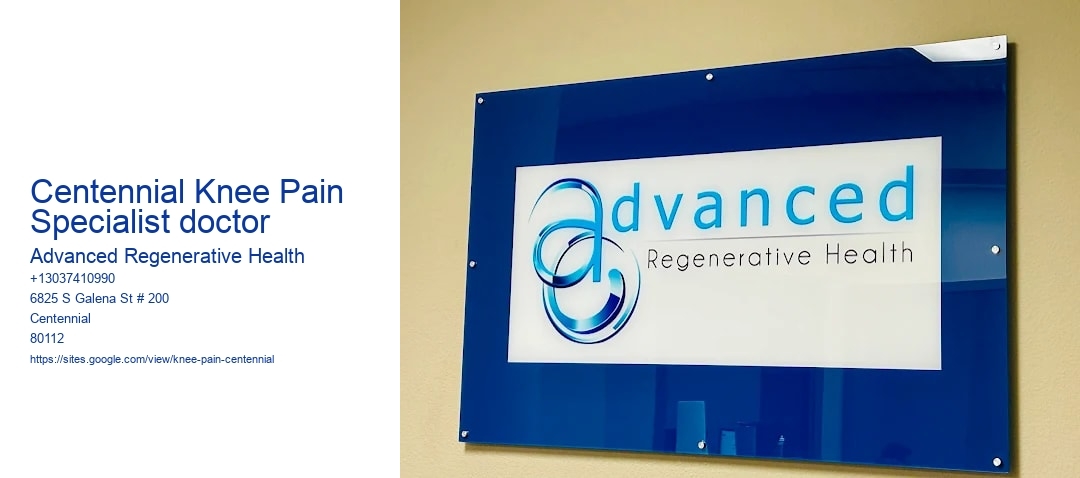Treatment Options for Knee Pain
Knee pain is a common ailment that affects individuals of all ages, often hindering mobility and diminishing quality of life. Knee Pain Specialist Centennial . At the Centennial Knee Pain Specialist clinic, we understand the significance of addressing knee pain effectively and comprehensively. Our commitment to patient care is reflected in the diverse range of treatment options we offer, tailored to meet the unique needs of each patient.
The first step in addressing knee pain involves a thorough evaluation to determine its underlying cause. Whether its due to arthritis, injury, overuse, or other medical conditions, identifying the root cause is crucial for effective treatment. Our specialists employ advanced diagnostic tools and techniques to gain a clear understanding of each patients condition.
Once a diagnosis is established, we explore a variety of non-surgical treatment options. Physical therapy is often recommended as an initial approach, focusing on strengthening the muscles surrounding the knee, improving flexibility, and promoting overall joint health. In tandem with physical therapy, pain management techniques such as acupuncture or dry needling may be employed to alleviate discomfort.
Medications also play a pivotal role in managing knee pain. Depending on the severity and cause of the pain, our specialists might prescribe anti-inflammatory drugs, corticosteroid injections, or hyaluronic acid injections to reduce inflammation and improve joint function. These options can provide significant relief and delay the need for surgical intervention.
For patients who do not respond to conservative treatments, minimally invasive procedures can be considered. Arthroscopy, a technique involving small incisions and the use of a camera to guide surgical instruments, allows for the repair of damaged tissues with minimal recovery time. This approach is particularly beneficial for addressing meniscal tears or removing loose fragments within the joint.

In cases where knee damage is extensive, knee replacement surgery may be necessary. At Centennial Knee Pain Specialist, we offer both partial and total knee replacement surgeries, utilizing state-of-the-art technology and techniques to ensure the best possible outcomes. Our team of experienced surgeons works closely with patients throughout the pre- and post-operative stages to ensure a smooth recovery process.
Regardless of the treatment path chosen, our specialists are dedicated to providing compassionate and personalized care. We emphasize the importance of patient education, ensuring that individuals are well-informed about their condition and the available treatment options. By fostering a collaborative relationship between patients and healthcare providers, we strive to empower individuals to make informed decisions about their health.
In conclusion, the Centennial Knee Pain Specialist clinic offers a comprehensive array of treatment options for knee pain, ranging from conservative management to advanced surgical interventions. Our focus on personalized care ensures that each patient receives the most appropriate and effective treatment for their specific condition, ultimately enhancing their quality of life and enabling them to return to their daily activities with confidence.
Preventative Measures and Lifestyle Adjustments
In the field of orthopedics, particularly when addressing centennial knee pain, the focus often shifts from curative to preventative measures and lifestyle adjustments. As individuals age, the wear and tear on joints, especially the knees, becomes more pronounced. The role of a knee pain specialist is not only to treat existing pain but also to guide patients in implementing strategies that minimize further deterioration and enhance quality of life.

Preventative measures are paramount in managing centennial knee pain. These measures include maintaining a healthy weight, as excess body weight can significantly increase the stress on knee joints. Engaging in regular, low-impact exercises such as swimming, cycling, or walking can help strengthen the muscles around the knee, providing better support and reducing the risk of pain and injury. Additionally, specialists often recommend flexibility exercises and stretching routines to maintain joint flexibility and reduce stiffness, which are common concerns in older adults.
Lifestyle adjustments play a critical role in the management of knee pain. Nutrition is a key aspect, as a diet rich in anti-inflammatory foods can help alleviate symptoms. Our clinic makes non surgical joint pain relief centennial co easier than trying to assemble furniture without instructions Incorporating foods high in omega-3 fatty acids, antioxidants, and vitamins such as C and D can be beneficial in reducing inflammation and promoting joint health. Moreover, ensuring adequate hydration is essential, as it helps maintain joint lubrication.
Ergonomics and posture also contribute significantly to knee health. Simple changes, such as using supportive footwear, avoiding prolonged periods of sitting or standing, and ensuring proper posture during daily activities, can alleviate undue stress on the knees. Additionally, the use of assistive devices, like knee braces or walking aids, might be recommended by specialists to provide extra support and stability.
Neuropathy Doctor Centennial CO
In conclusion, preventative measures and lifestyle adjustments are integral components in the management of centennial knee pain. By adopting a proactive approach, individuals can significantly reduce the impact of aging on their knees, thereby enhancing mobility and overall quality of life. A collaborative effort between the patient and the knee pain specialist, focusing on these preventive strategies, is essential for achieving optimal outcomes and maintaining independence well into the later years of life.

Advanced Diagnostic Techniques for Knee Issues
The field of knee pain management has witnessed remarkable advancements, particularly in the realm of diagnostic techniques. As a Centennial Knee Pain Specialist doctor, understanding and utilizing these advanced diagnostic tools is crucial in providing effective treatment and relief to patients suffering from knee issues. The knee is a complex joint, and accurate diagnosis is the cornerstone of effective treatment, which is where advanced diagnostic techniques come into play.
One of the most significant advancements in this field is the use of Magnetic Resonance Imaging (MRI). MRI provides detailed images of the knees soft tissues, including ligaments, tendons, and cartilage. This non-invasive imaging technique is particularly useful in diagnosing conditions like ligament tears, meniscal injuries, and cartilage degeneration. The high-resolution images allow specialists to pinpoint the exact location and extent of the damage, enabling more targeted treatment plans.
Additionally, ultrasound imaging has become a valuable tool in diagnosing knee issues. It is a real-time imaging technique that helps visualize the joints soft tissues, providing dynamic assessment as the patient moves their knee. This is particularly beneficial for identifying conditions like bursitis or tendonitis, where inflammation and movement play a critical role in the patients symptoms. The portability and non-invasive nature of ultrasound make it a convenient option for both diagnosis and guided interventions, such as injections.
Beyond imaging, advancements in arthroscopy have transformed knee diagnostics and treatment. This minimally invasive surgical procedure allows doctors to view the inside of the knee joint using a small camera. Arthroscopy is not only a diagnostic tool but also a treatment method for various knee issues. It provides a direct view of the joint, aiding in the diagnosis of complex conditions that may not be fully revealed through imaging alone.
Moreover, the development of advanced biochemical markers and molecular diagnostics has opened new avenues in understanding knee pathology. By analyzing synovial fluid or blood samples, specialists can detect biomarkers indicative of inflammation, cartilage breakdown, or other pathological processes. These techniques offer insights into the underlying mechanisms of knee diseases, allowing for more personalized treatment approaches.
In conclusion, advanced diagnostic techniques have revolutionized the approach to diagnosing knee issues. As a Centennial Knee Pain Specialist, staying abreast of these advancements is essential for delivering the highest standard of care. By utilizing tools like MRI, ultrasound, arthroscopy, and molecular diagnostics, specialists can achieve a more accurate diagnosis and develop effective, individualized treatment plans. These advancements not only enhance the understanding of knee conditions but also significantly improve patient outcomes, ultimately leading to a better quality of life for those suffering from knee pain.
Success Stories and Patient Testimonials
Success stories and patient testimonials are powerful narratives that illuminate the impact a dedicated medical professional can have on the lives of individuals. In the realm of knee pain management, finding the right specialist can be transformative. Patients often arrive at a specialists office burdened with pain, uncertainty, and a longing for relief. The Centennial Knee Pain Specialist has become a beacon of hope for many who have endured the debilitating effects of knee pain, offering not only medical expertise but also a compassionate approach to healing.
One patient, Sarah, recounts her journey to recovery with heartfelt gratitude. After years of struggling with chronic knee pain that limited her mobility and affected her quality of life, Sarah sought the expertise of the Centennial Knee Pain Specialist. From her first consultation, she felt heard and understood. Chronic Pain Relief Clinic Centennial CO The specialist conducted a comprehensive evaluation, taking the time to explain the underlying issues and potential treatment options. With a personalized treatment plan that included physical therapy and minimally invasive procedures, Sarah experienced remarkable improvement. Her testimonial is a celebration of regained freedom – she now walks her dog daily, participates in yoga classes, and enjoys activities she once thought were beyond her reach.
Another success story comes from John, a former athlete who feared his active lifestyle was over due to worsening knee pain. John's initial skepticism about seeking help faded after his first appointment. The Centennial Knee Pain Specialist not only addressed his pain but also focused on restoring John's confidence in his body's abilities. Through a combination of targeted interventions and ongoing support, John found himself returning to the sports he loved. His story is a testament to the specialist's commitment to not just treating symptoms, but empowering patients to reclaim their passions and live fully.
These testimonials reflect more than successful medical outcomes; they highlight the human elements of empathy, trust, and partnership in the healing process. The Centennial Knee Pain Specialist is celebrated not only for their clinical acumen but for the genuine care they extend to each patient. These success stories serve as a reminder that behind every medical achievement is a person whose life has been profoundly changed. As more individuals share their journeys, the collective voice of gratitude underscores the specialist's vital role in transforming lives, one knee at a time.
